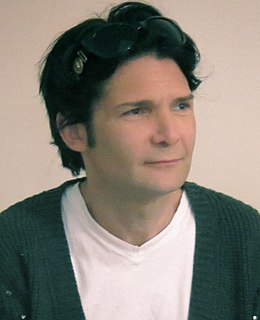A Quote by Scott Belsky
While the tendency to generate ideas is rather natural, the path to making them happen is tumultuous.
Related Quotes
Kids don't need to be taught the value of making; they are natural makers, at least until traditional education makes them afraid of making mistakes. The long-term value of making for kids is in learning to become an active participant in the world around them rather than a consumer of prepackaged products and solutions.
I used to worry that I had a finite supply of ideas, that I should hold on to each of them in case it was the last. But then I talked to other cartoonists, and I realized ideas are cheap; you can have a million ideas. The tricky part is the follow-through: making good ones work, making the best out of the raw material!
The natural tendency of children is to solve problems, but we try to indoctrinate them with facts, which they are supposed to feed back, and then we fail them. And that's child abuse. And you should never raise children that way. You should cultivate and encourage their natural tendencies to create solutions to the problems around them.


































